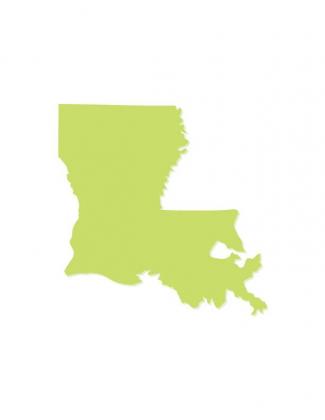
Most people in south Louisiana know that the feast of the Assumption, August 15, has been set aside as a special day by Acadians in Canada and by their Cajun cousins in Louisiana. But there was a big argument before that day was decided, and June 24 — the feast of St. Jean-Baptiste — very nearly was chosen instead.
August 15 was selected as National Acadian Day during the first National Convention of the Acadians held at Memramcook, New Brunswick, in 1881 — a century and a quarter after they were sent into exile. The debate was not about whether the Acadians should set aside a day to celebrate the rebirth of their culture. The argument was over which day.
Until 1834, June 24 was just like any other saint’s day in the Christian calendar in Canada — a day to remember St. John the Baptist. But in the spring of 1834, Ludger Duvernay, a French-Canadian businessman, watched as people of Irish heritage celebrated St. Patrick’s Day. That made him think that French Canadians also should celebrate their heritage. He formed the Saint Jean-Baptiste Society, which began celebration of the feast each June 24.
So, Jean-Baptiste Day had been celebrated for nearly 50 years when the Acadians held their 1881 congress, and some delegates thought the Acadians would have more influence on Canada’s predominantly English culture if they celebrated at the same time as other francophone Canadians. They also argued that, as a practical matter, August 15 fell in the middle of the harvest season, when Acadians would be too busy to really celebrate the day.
Those who wanted August 15 contended that the Acadians had far different cultural roots than other Canadians of French heritage. They said they needed a day of their own, and that French people around the world had celebrated Assumption Day since 1638, when King Louis XIII chose Our Lady of the Assumption as his country’s national patroness.
If they made August 15 the national day of the Acadians, they argued, they would get two chances to promote their heritage — with the other French-speakers on St. Jean-Baptiste day in June and again on Assumption Day in August. They dismissed the argument that August 15 came at harvest time, since June 24 was in the middle of their planting season, and they would be just as busy then.
Abbot Marcel-Francois Richard, who favored August 15, is credited with presenting the most convincing argument.
“It seems to me that a people who, for over a century of hardships and persecutions, was able to preserve its religion, language, customs and autonomy, must have acquired enough importance to affirm its existence in a solemn way,” he argued, “and this could not be accomplished better than by being able to celebrate its own national holiday.”
He feared that without their own holiday the Acadians would simply be lumped together with other French Canadians, and that the uninformed might “mistake our nationality with theirs.”
He argued that “the Assumption has always been, and must always remain, National Acadian Day, since Acadians are descendants of the French race.”
Father Richard said that Acadians brought “the customs of their homeland” to Acadie, and “if unfortunate circumstances prevented them from celebrating their national holiday in a regular manner, it is true that the national devotion of the Acadians is their devotion to Mary.”
His argument won the day. June 24 is a public holiday in the Quebec province and Acadians join in that celebration of French Canada. But their special celebration is on August 15, a day declared by King Louis some 250 years before the Acadian convention as special to all francophone people.
A collection of Jim Bradshaw’s columns, Cajuns and Other Characters, is now available from Pelican Publishing. You can contact him at jimbradshaw4321@gmail.com or P.O. Box 1121, Washington LA 70589.
